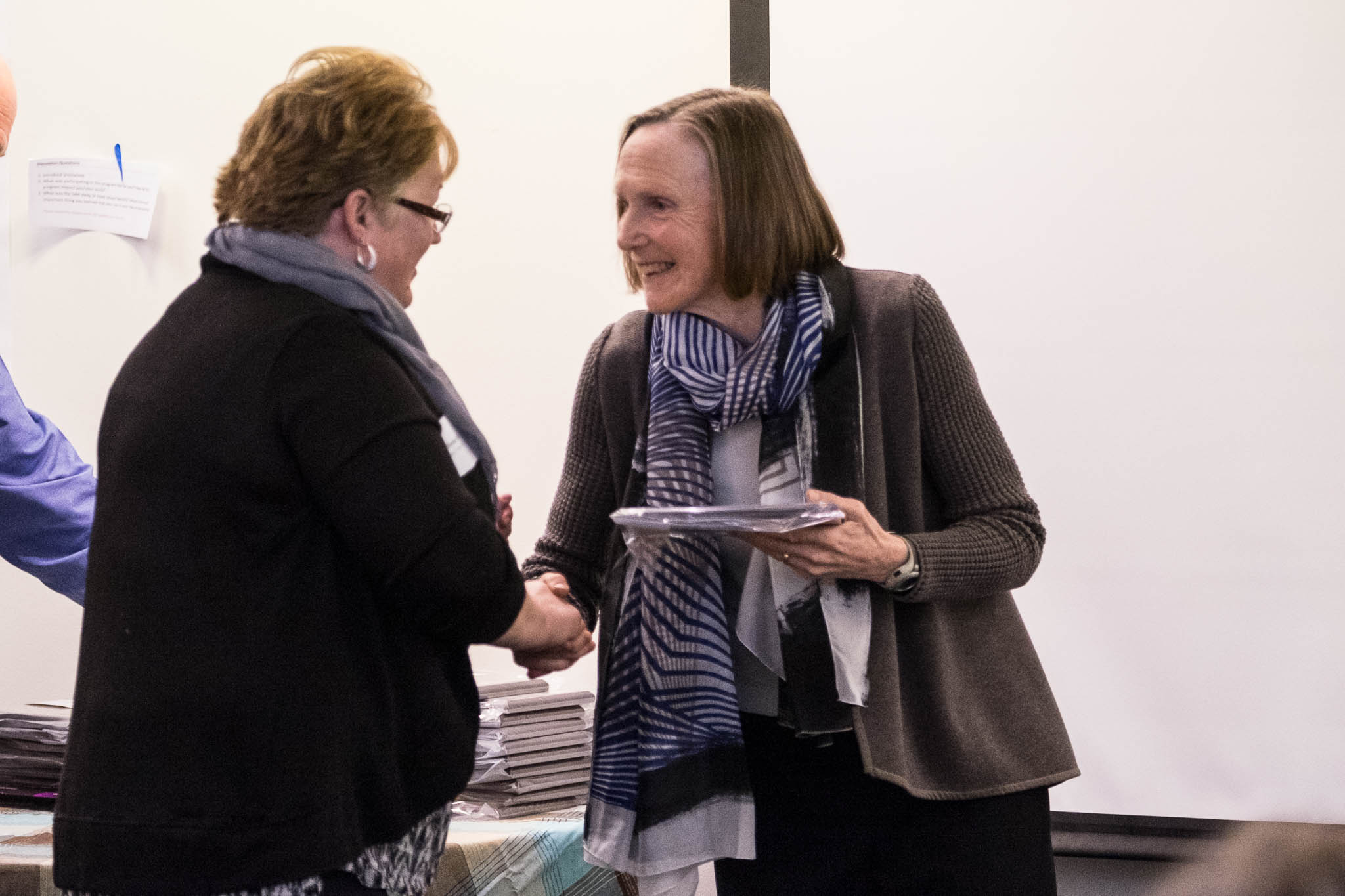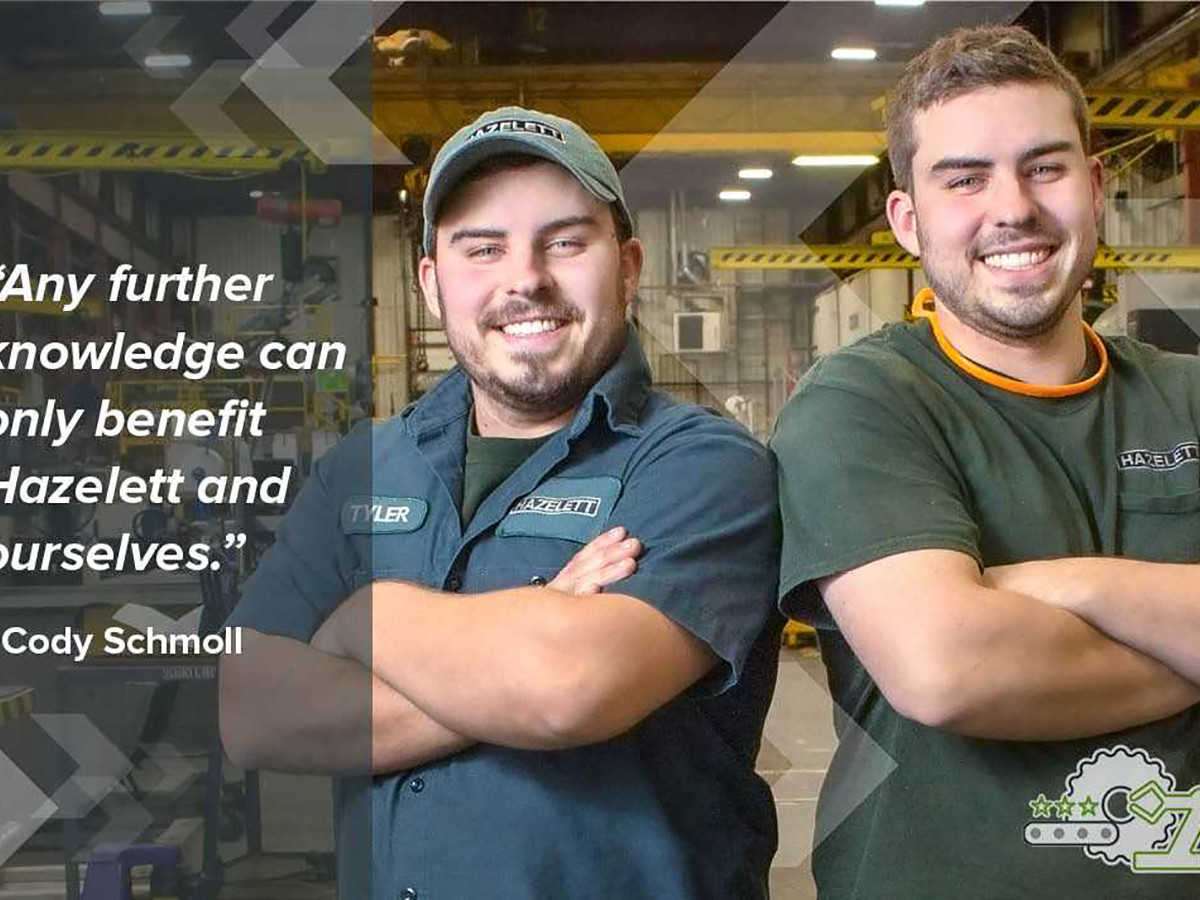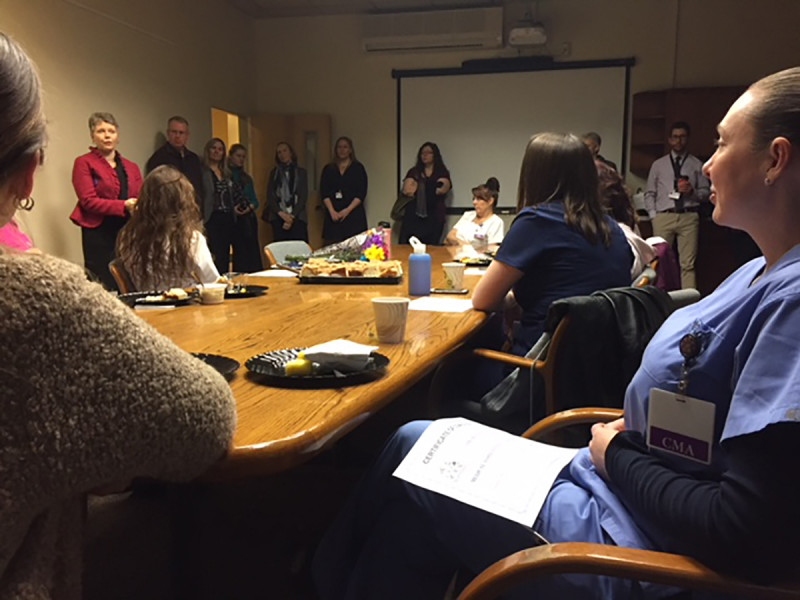
“I don’t think there’s been a day that’s passed by that I haven’t thought about working at Hazelett.” Tyler Schmoll is young, bearded, and stoic. He’s wearing a forest green button-down t-shirt—the company uniform—with a patch on one chest that reads “HAZELETT” and a patch on the other that displays his first name. His worn baseball hat also sports the company logo. Sitting next to Tyler in a matching easy chair (and in matching company-issued duds) is his twin brother, Cody.
The brothers grew up here. Their father started working at the strip-casting manufacturer in the late ‘80s—a few years before they were born—and they recall spending summer days at the lakefront in front of the plant grounds. “Three days a week we’d come here with my mom…we’d go meet my dad for lunch and then come back and watch the forklifts go up and down the parking lot,” remembers Tyler. Both dreamed of working at the manufacturer since those childhood days.
They graduated from Milton High School in 2012, and Tyler started taking classes at CCV in 2013. He says he knew when he left high school that he should continue his education. But he also wanted to work with his hands, and in 2013, he got a job at Hazelett. He’s still working toward his CCV degree, and he’s determined to finish (Cody is also a CCV student; both are more than halfway to a degree). “It shows that you can educate yourself and you can be trainable, and I think that’s the important piece to me. I want to make sure that my employer knows that schooling is important.”
Learn more about credentials and training at CCV:
- Certified Production Technician
- ACRE (Association of Community Rehabilitation Educators) Certificate of Achievement
- Certified Public Bookkeeper
- Medical Assisting

And now, the brothers are confident that Hazelett does know this. Cody joined Tyler at the company in 2016, and both recently completed the Certified Production Technician (CPT) training program offered through a CCV/Hazelett partnership. The CPT is a nationally recognized credential, and Cody and Tyler signed up immediately after finding out about it. “It was posted on the bulletin board, and I know for myself any classes or trainings or anything that can expand my knowledge I was right on top of,” says Cody. “So as soon as [training manager] Dan [Gleason] posted it, we both happened to be walking down the midway in the shop and I said ‘hey did you see that posting?’ so we both ran over and put our names down on it. Any further knowledge can only benefit Hazelett and ourselves.” The 16-week class took place outside of their full-time work schedules, and required three hours of class time plus homework each week.
Two months into the class, Cody’s wife gave birth to their daughter, who arrived ten weeks early. “We spent five weeks in the NICU,” he said. “So it was definitely hard to put her back in the incubator and then get to class and then rush back to the hospital after.” But Cody was committed to finishing the class. In the end, both brothers got a raise—Hazelett proudly walks the talk when it comes to the saying, “the more you learn, the more you earn.”
An aging workforce and fewer young workers entering the field means that the manufacturing industry nationwide, as well as here in Vermont, is suffering the effects of a skills gap. The CPT is one way to bridge that gap. “Our workforce within Hazelett is beginning to age,” said Cody. “I think in the trades as a whole that’s what we’re seeing, but there’s a lot of ‘gray hair/no hair’ in the shop and I think as an industry altogether that they’re really wanting to stress that young talented people are really needed.”
Dan Gleason is Hazelett’s full-time training manager, charged with designing and delivering professional development for more than 150 employees. “We want to have lifelong learners here because of the constant change in technologies,” he explains. “Graduation day—that’s a myth. That’s a false narrative. There’s no such thing.” His philosophy? If you want to be successful in a rapidly changing world, you have to become a lifelong learner. The CPT set the stage for creating that culture at Hazelett.
Gleason says the company wanted employees to understand that they viewed the training as an investment, so they sponsored a portion of it. “It was no cost to employees – we paid people to be in the class.”
For Cody Schmoll, the compensation was more than monetary. “Not only do we walk away with a nationally recognized certification, Hazelett really stood behind us in this whole process. Everybody received a raise at completion. That alone was worth it, not to mention the knowledge. And showing the commitment to finishing the course definitely broadened everybody’s horizons too within the company.”



